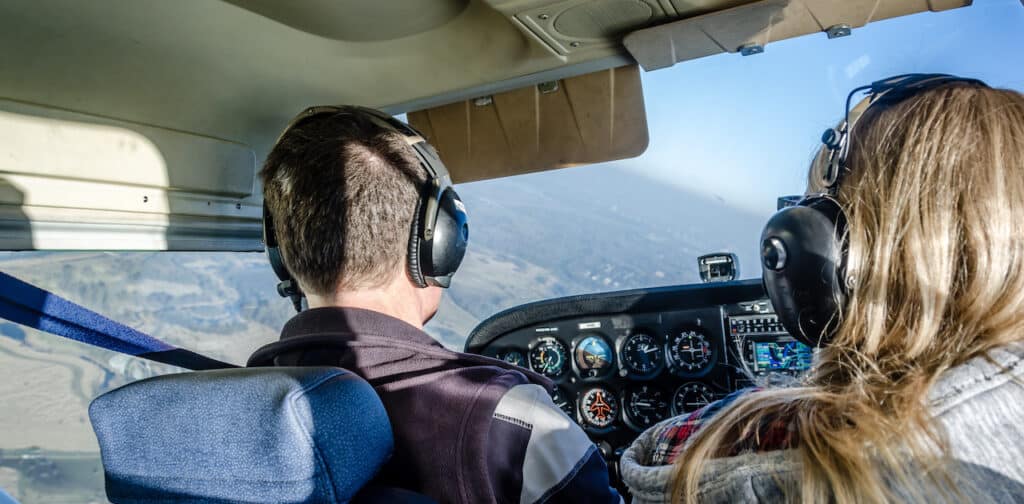
When you’re not mental health professionals — but sometimes have to be
After readying for an emergency landing, a pilot fears for the life of the crew and passengers aboard. An indicator light flashes red above the co-pilot’s head. The ground crew and air traffic control scramble to assist. Earlier, a passenger was angry over the seating arrangement, and that seems less a traumatic event now but left the crew feeling bitter. The pilots and crew are tired, but now they surge with adrenaline as they wait to see if this is a close-call or near-miss incident.
Any of these critical incidents could happen by itself in the aviation industry. Or they could happen all at once in a cascade of stress that strains everyone’s training and mental and physical health.
Critical Incident Stress Management (CISM) can’t eliminate these problems or predict them, but can help aviation and ground crews with the implementation of systems that aid recovery.
Crisis intervention on the ground or in the air
Critical Incident Stress Management helps professionals in any industry with six primary benefits:
- Psychological support designed for people who have witnessed or experienced critical incidents. In the aviation industry, this could be near-miss incidents, unruly passengers, medical emergencies resulting in death, or any traumatic event.
- Rapid response, where CISM teams ensure all the right resources and support services are in place when they’re needed. This includes mental health providers and trained debriefers. Airlines already have systems in place for this, as do large airports. But smaller regional airports and landing strips often do not. CISM also provides crisis intervention, which provides a mix of de-escalation and incident stress management techniques.
- Debriefing and defusing sessions, where people can talk about their experiences. This can be valuable for helping people process trauma, but also yields an understanding of the reactions of people involved and can support investigations into dealing with future crises.
- Education and training, empowering aviators to learn stress management techniques. Pilots are often trained to the point of reacting by muscle memory. This helps maintain focus and “doing without thinking,” but small plane pilots and hobbyists frequently do not have this level of training.
- Enhancing organizational resilience, as part of the basic tenants of CISM, can help management reduce turnover, support employees and lower-level managers, and more. It can also help employees who may not be considered “primary victims”. For instance, clean-up crews and custodial staff who routinely deal with the “fallout” of human grief or incidents, such as witnessing distraught people from nearby or cleaning up blood or bodily fluids.
- Preventing absenteeism and decreased productivity by proactively addressing the psychological impact of critical incidents through CISM. CISM programs and principles help people get back to their jobs or in the air with better success, faster, and with more participation than without.
Critical incident stress debriefing offers valuable insights for investigators
Critical Incident Stress Management provides structure when there is frequently only grief, anger, or fear. The aim is to bring defined methods of investigation and review of a critical incident.
These sessions provide a structured opportunity for investigators to discuss their experiences, emotions, and challenges related to the incident. It’s good follow-up for the investigators from secondary trauma, but also provides a brief overview of the human factors that led up to the crisis, disaster, or critical incident in the first place.
Debriefing can help people:
- Process their feelings
- Gain perspective
- Cope with the stress and trauma associated with their role in the investigation.
It can also aid recovery for others, offer interventions where necessary to protect the investigation and investigators, if any, and allow a person to share details or access memories they may have repressed or failed to report.
Get started with CISM for your crew or team
Aviation professionals are not emergency mental health professionals. CISM does not seek to make them one. But Critical Incident Stress Management does provide:
- Models for colleagues to support one another,
- Peer support groups that offer a platform for pilots or others to connect with peers facing similar challenges,
- Ways to recognize signs of a person’s stress level and,
- Methods to reduce the likelihood of a repeat critical event.
Some forms of incident stress management and de-escalation can be paired together, too.
For an evaluation of your current stress management program or course, call or email us, or request a consultation.
VPC trainers have implemented crisis intervention and critical incident courses across the United States and world for first responders, healthcare providers, and other locations where proper implementation helps everyone manage issues, improve follow-up, and reduce future incident stress.

















